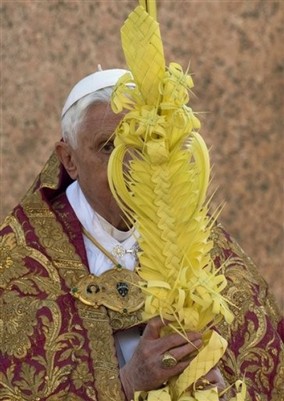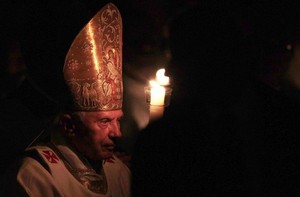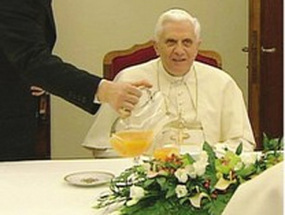Pope Benedict is nothing if not a master of the spiritual life and superb pastor of souls. His Palm Sunday homily delivered earlier today is extraordinarily beautiful for its content and style , but most importantly it gives us a path to Jesus. He’s not giving a legacy; he’s giving us truth.

It is a moving
experience each year on Palm Sunday as we go up the mountain with Jesus,
towards the Temple, accompanying him on his ascent. On this day, throughout the
world and across the centuries, young people and people of every age acclaim
him, crying out: “Hosanna to the Son of David! Blessed is he who comes in the
name of the Lord!”
But what are we really doing when we join this procession as
part of the throng which went up with Jesus to Jerusalem and hailed him as King
of Israel? Is this anything more than a ritual, a quaint custom? Does it have
anything to do with the reality of our life and our world? To answer this, we
must first be clear about what Jesus himself wished to do and actually did.
After Peter’s confession of faith in Caesarea Philippi, in the northernmost
part of the Holy Land, Jesus set out as a pilgrim towards Jerusalem for the
feast of Passover. He was journeying towards the Temple in the Holy City,
towards that place which for Israel ensured in a particular way God’s closeness
to his people. He was making his way towards the common feast of Passover, the
memorial of Israel’s liberation from Egypt and the sign of its hope of
definitive liberation. He knew that what awaited him was a new Passover and
that he himself would take the place of the sacrificial lambs by offering
himself on the cross. He knew that in the mysterious gifts of bread and wine he
would give himself for ever to his own, and that he would open to them the door
to a new path of liberation, to fellowship with the living God. He was making
his way to the heights of the Cross, to the moment of self-giving love. The
ultimate goal of his pilgrimage was the heights of God himself; to those
heights he wanted to lift every human being.
Continue reading Walking that new path of liberation by the gravitational force of God’s love, Pope Benedict tells








